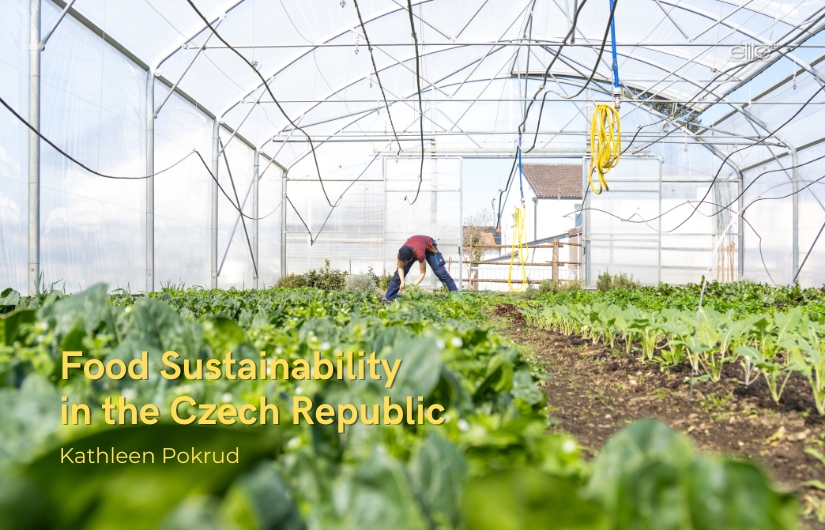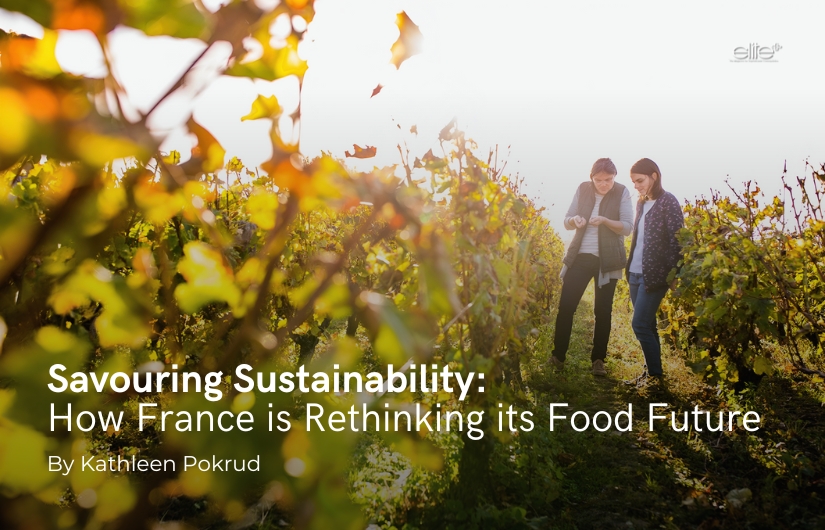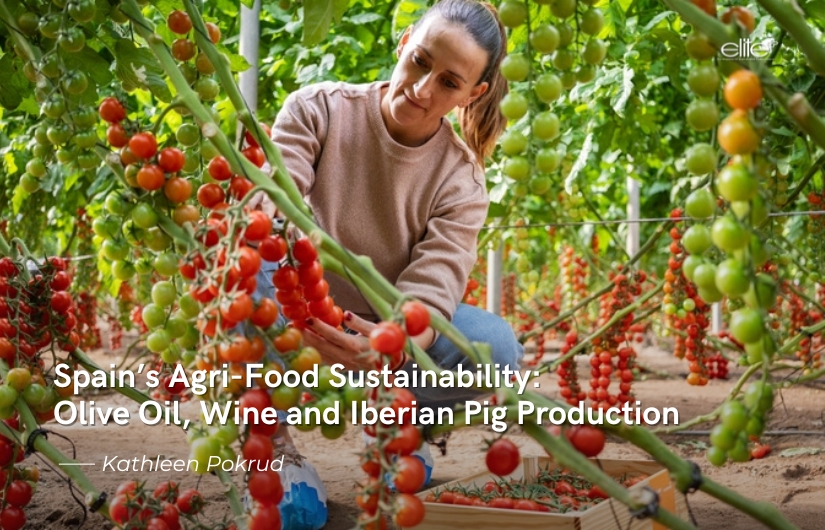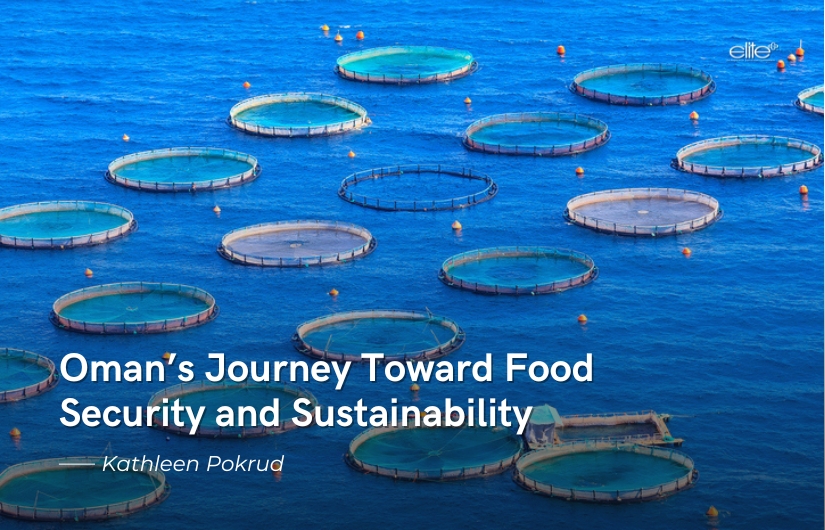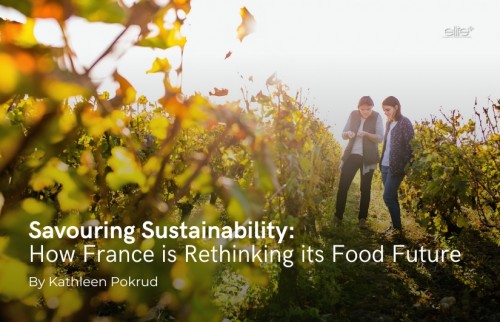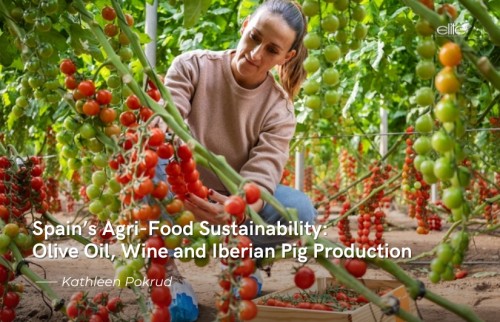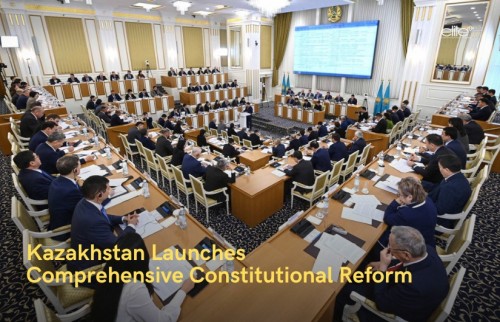By Kathleen Pokrud
Photo courtesy of The Embassy of the Czech Republic
Food sustainability in the Czech Republic is an increasingly important topic as the country seeks to balance agricultural production, environmental protection and food security. In the “Global Culinary Stories" series (https://www.eliteplusmagazine.com/Article/902/Czech_Republic_s_Culinary_Story), Czech Cuisine was explored. For this article, I sat down with HE Ambassador Pavel Pitel of the Czech Republic to learn about the work being done in terms of food sustainability and how the country synergies their actions together with the European Union.
_980410481.jpeg)
Ambassador Pavel began, “Food security is an area the Czech government keeps an eye on, but it has not always been a top priority. However, recent global crises, mainly the Covid-19 pandemic and the war in Ukraine, have forced our government to focus more on food sustainability and resilience to ensure the food supply will remain stable in the future. As an EU member, Czechia follows the Common Agricultural Policy (CAP), which provides financial support to farmers to help maintain stable food production. In addition, the government has developed a National Agricultural Strategy that focuses on domestic production, sustainability, and reducing dependence on imports.
“Czechia does not aim to achieve complete food self-sufficiency and recognises the benefits of the European single market. This market allows countries to specialise in producing certain goods and import others, optimising resources and consumer choice. For instance, while Czechia is self-sufficient in milk and cereals, it relies on imports for commodities, like vegetables and fruits. This approach acknowledges that no EU country is entirely self-sufficient, and participating in not only the European market enables access to a diverse range of products that may not be efficiently produced domestically. Therefore, striving for complete self-sufficiency is neither practical nor economically advantageous.”

Ambassador Pavel admitted that Czechia faces several challenges when it comes to adopting eco-friendly food production and regenerative farming. “While more people are becoming aware of sustainable agriculture, there are still many problems in policy, financial support and environmental conditions. Intensive farming and monoculture crops have led to serious soil degradation and erosion. Climate change is making the situation even harder.
“Transitioning to organic farming is expensive and it takes time for the soil to recover. Farmers are often reluctant to switch to regenerative practices because financial support is limited and many lack the technical know-how. Another challenge is that many consumers prioritise low prices over quality and sustainability.
_sanitized__963344417.jpg)
“To tackle these issues, the Czech government and the EU are trying to promote sustainable farming through subsidies, awareness campaigns and policy changes.”
Ambassador Pavel shared that the Czech Government has introduced several policies to support food sustainability. “The focus is on sustainable farming, local food production and environmental protection. These efforts align with the EU’s Common Agricultural Policy (CAP), and the country’s strategic plan aims to make farms more resilient while protecting natural resources and the climate. This includes redistributing financial support to small and medium-sized farms, promoting organic farming and investing in rural development. Additionally, the National Organic Action Plan seeks to increase organic food consumption to 4% by 2027, supporting market access for organic farmers and raising consumer awareness.
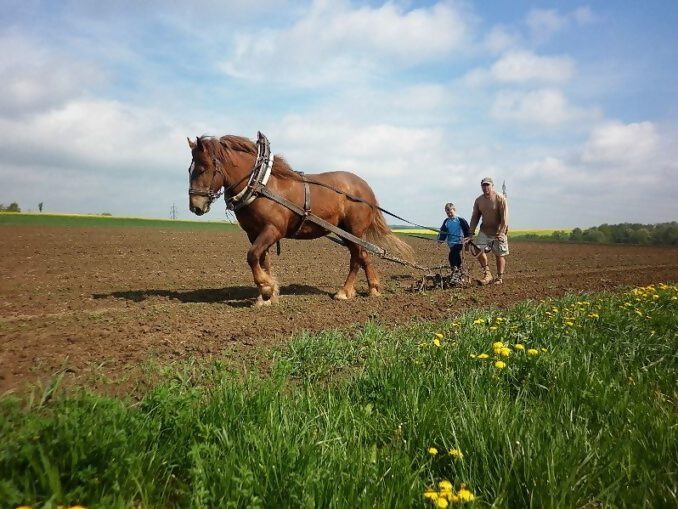
“Farm-to-table initiatives are also playing a role in sustainability by creating direct partnerships between food providers and local farmers. The Central Institute for Supervising and Testing in Agriculture oversees compliance with these regulations, ensuring that construction projects adhere to soil protection standards.
“In 2022, Czechia was ranked seventh in Europe and among the top 20 countries in the world in terms of organic farming land area and according to the ministry, agricultural land should account for 22% of total acreage by 2027, following the European approach, which calls for 25% of our land to be allocated to agriculture by 2030.”
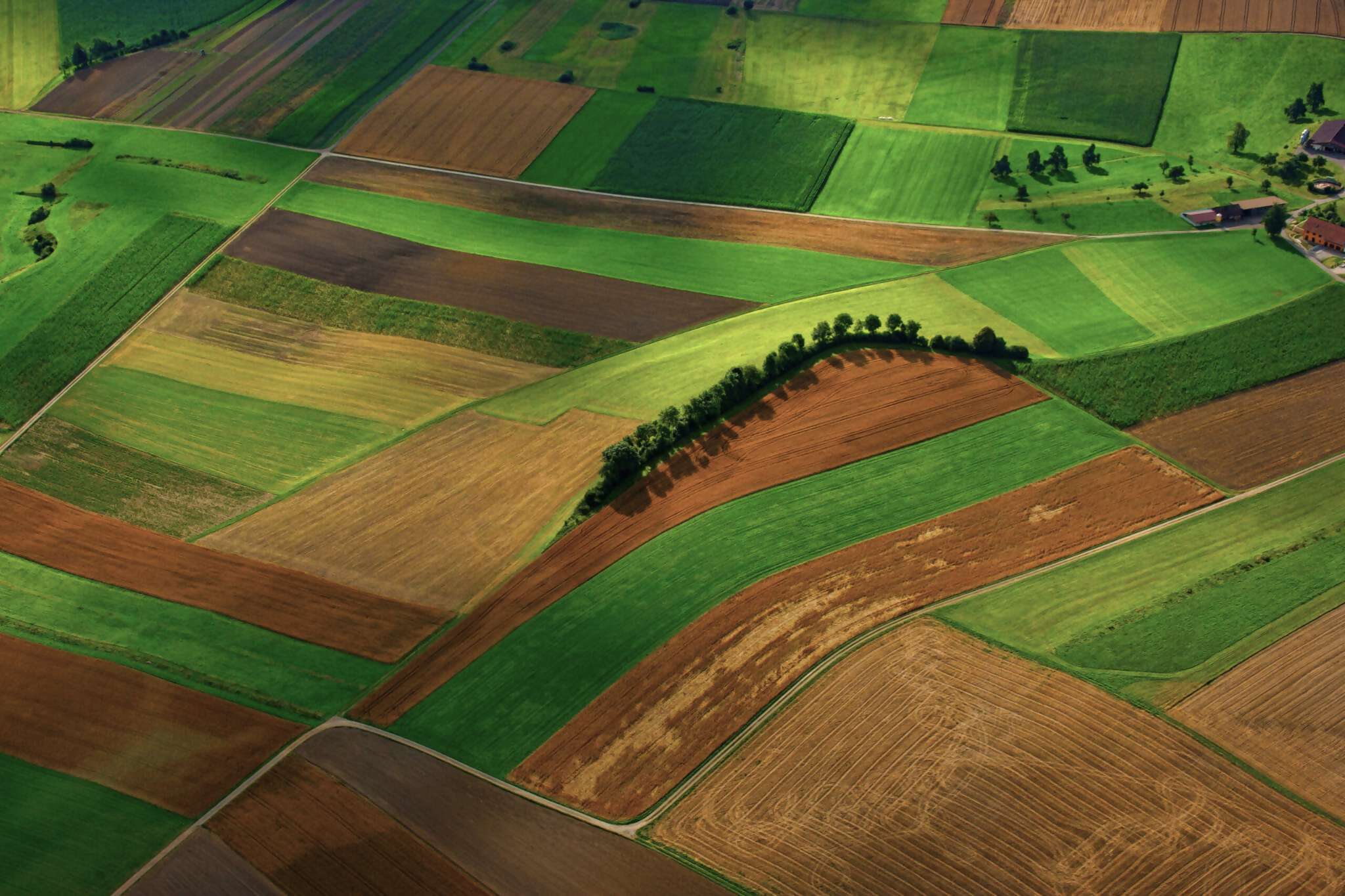
In terms of grassroot or private sector involvement, Ambassador Pavel commented, “Both grassroot initiatives and the private sector play a significant role in promoting sustainable agriculture. Local communities and NGOs focus on agroecology, food education and local markets, aiming to create a more self-sufficient agricultural system that prioritises sustainability and food sovereignty. The private sector also contributes through corporate social responsibility (CSR) initiatives, supporting local farmers and introducing more sustainable practices.
“In addition, research and development efforts are increasing, with businesses collaborating with research institutions to find innovative farming techniques. Another interesting trend is social farming, which is becoming more popular. It not only promotes sustainable agriculture, but also provides job opportunities for disadvantaged groups.”
_sanitized__601646135.jpg)
Czechia has continued to look for new ways to make farming more sustainable and protect the environment. Ambassador Pavel elaborated, “Technologies like precision farming such as those developed by Farmonaut, help farmers manage resources more efficiently and boost crop yields. Regenerative agriculture is becoming more popular, focusing on improving soil health and capturing carbon to help tackle climate change.
“More and more agribusinesses are trying to find a balance between productivity and environmental protection by adopting greener practices. Meanwhile, the government is working on new laws to support circular farming practices, making waste management more efficient and using resources more effectively.”
_sanitized__1203404339.jpg)
On a regional or global level, Ambassador Pavel said, “The European Union (EU) and Thailand have been negotiating a Free Trade Agreement (FTA), with the aim to finalise the discussions by late 2025 or early 2026. The FTA could significantly improve access to high-quality and more affordable food products on both sides. Thailand produces goods like rice and tropical fruit, which are either not grown or inefficiently cultivated in Europe due to less favourable natural conditions. In return, EU countries can provide high quality dairy products, meat, wine or locally grown fruits and vegetables. Strengthening of mutual agricultural trade can optimise production in regions best suited for specific crops and promote efficient resource use. Instead of supporting inefficient local production, the FTA would enable a situation where consumers get better quality and priced products, and farmers can focus on what they can grow best.”
Ambassador Pavel concluded, “With growing concerns over climate change, soil degradation, and resource depletion, Czech policymakers, farmers and consumers are exploring ways to promote sustainable food systems. Initiatives such as organic farming, local food networks and reduced food waste are gaining traction, supported by both EU regulations and national strategies.”
_sanitized__415889911.jpg)


